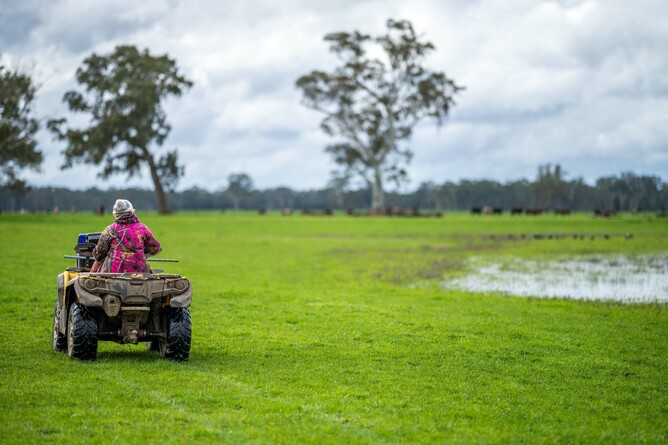With herd Leptospirosis (Lepto) vaccinations about to start, it’s a good time to remember why we vaccinate for this disease.
Lepto can cause sickness and abortions in some dairy cows, and in others it may cause no symptoms and they simply carry the bacteria and pass it to others. Lepto is likely to be contracted by unvaccinated calves from their first autumn onwards, and can be shed by an infected animal in their urine for years.
As a zoonotic disease, it’s easily spread from animals to humans. There are plenty of people who have had Lepto if you ask around – and they don’t recommend it!
Mild cases tend to show flu-like symptoms, with a fever and headache, but many cases are worse than this, with liver and kidney damage. One New Zealand study showed half of people who had contracted Lepto still had symptoms eight months later.
When we recommend vaccinating dairy herds it’s more for human health and the safety of farmers, farm workers, and their families, as well as related jobs such as vets and meat workers. Unfortunately there is no human vaccine.
However, correct vaccination of your cows is not the only way to protect yourself from getting sick with Lepto. Other things that can help are:
Keeping clear of urine spray and standing water,
Wearing appropriate protective gear, including gloves and gumboots,
Keeping any cuts well covered,
Not eating, drinking, smoking or vaping while milking.
Lepto bacteria usually enter through cuts or mucous membranes (the moist areas in the eyes, nose and mouth).
Also, consider other animals and wildlife that could spread Lepto amongst your stock or the people on your farm.
Pigs are becoming uncommon now on dairy farms, but they are more of a risk than cows for passing Lepto onto other animals and people. So don’t keep pigs near the milking shed or calf sheds. There is a Lepto vaccine available for pigs if you have them on-farm, which is different from the cattle vaccine.
Rat control on the farm, especially around the sheds, is crucial as rats are major carriers of Lepto. Always wear gloves when cleaning where rats have contaminated an area.
Last year, we began vaccinating our dairy herds with a new Lepto vaccine for cattle, Lepto 4-Way.
This vaccine was created because many of the human cases of Lepto in New Zealand in recent years were shown to have been from a new strain of Lepto, Pacifica, which may be on up to three quarters of farms nationwide! The Lepto 4-Way vaccine covers this Pacifica strain, as well as the other strains, Harjo, Pomona and Copenhageni.
Most of our farmers’ cows should be fully converted to Lepto 4-Way, but if you had heifers off at grazing last year, there may be some that have yet to have the new vaccine and may need a booster to be fully covered. If in doubt, give us a ring.

